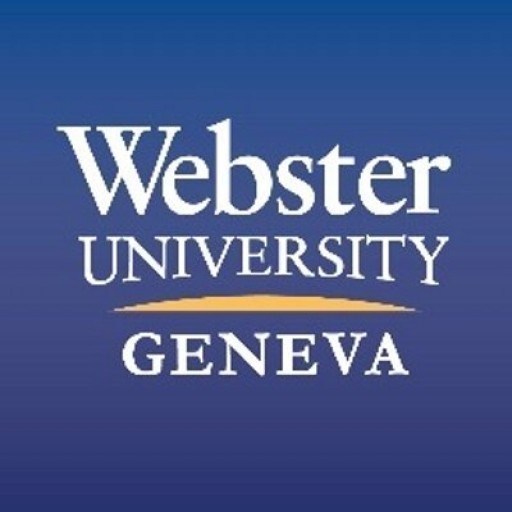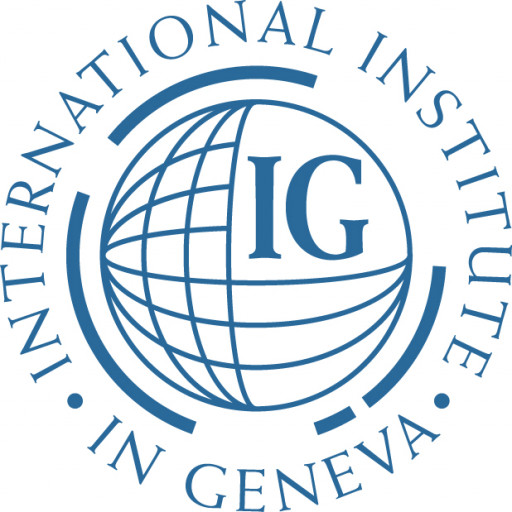The Bachelor of Arts in International Relations at Webster University Geneva offers students a comprehensive education designed to prepare them for careers in global diplomacy, international organizations, policy analysis, and other fields related to international affairs. The programme provides a solid foundation in political science, economics, history, and foreign languages, enabling students to understand complex global issues and develop critical thinking, analytical, and communication skills. Students engage with contemporary topics such as international security, human rights, global trade, environmental challenges, and regional conflicts, gaining insights into how international systems function and how diplomatic solutions are negotiated. The curriculum emphasizes intercultural competence and practical skills, fostering an understanding of diverse cultural perspectives and enhancing students' ability to operate effectively in multicultural environments. The programme combines theory with practice through case studies, simulations, and internships, offering students opportunities to apply their knowledge in real-world contexts. Graduates of the programme are well-equipped to pursue careers in government agencies, international NGOs, multinational corporations, or further academic study. With a diverse student body and experienced faculty, Webster University Geneva provides an enriching environment for academic growth and professional development. The programme is designed to be flexible, with options for specialization and electives that allow students to tailor their education to specific interests within the broad field of international relations. Overall, this degree prepares graduates to become informed, engaged, and ethical global citizens capable of contributing to solutions for some of the world's most pressing issues.
The Bachelor of Arts in International Relations at Webster University Geneva is a comprehensive program designed to provide students with a deep understanding of global politics, diplomatic affairs, international organizations, and the economic and cultural factors that shape international interactions. The curriculum combines theoretical frameworks with practical applications, preparing students for careers in diplomacy, international law, global business, non-governmental organizations, and policy analysis. Throughout the program, students explore key topics such as international security, human rights, global governance, environmental challenges, and the role of multinational institutions like the United Nations and the World Trade Organization. The program emphasizes critical thinking, intercultural communication, and analytical skills, enabling graduates to navigate complex international issues and contribute effectively to global solutions. Coursework includes case studies, simulations, research projects, and internships that offer hands-on experience in diplomatic settings and international organizations. Students also have opportunities to develop language proficiency and cultural competence, essential skills in today's interconnected world. The program is designed to foster an understanding of diverse perspectives and develop the leadership qualities necessary to address global challenges. Faculty members are experts in their fields, dedicated to providing personalized mentorship and fostering a dynamic learning environment. Graduates will be well-equipped to pursue advanced studies or enter the international workforce, making meaningful contributions to international peace, security, and development initiatives. This degree program reflects Webster University’s commitment to academic excellence, global engagement, and preparing students to become responsible global citizens.
The Bachelor of Arts in International Relations at Webster University Geneva requires students to complete a comprehensive curriculum designed to develop a robust understanding of global affairs, diplomatic practices, and international organizations. The program typically encompasses core courses in political science, economics, history, and international law, providing a multidisciplinary foundation essential for analyzing complex global issues. Students are expected to engage in both theoretical and practical learning, including case studies, simulations, and internships, to enhance their analytical, communication, and diplomatic skills. The curriculum emphasizes intercultural competence and critical thinking, preparing graduates for careers in diplomacy, international NGOs, government agencies, or multinational corporations. To graduate, students must earn a specified number of credit hours through coursework, including major-specific classes and general education requirements. Often, language proficiency is encouraged or required, with options to study additional languages to facilitate effective cross-cultural communication. The program may also incorporate a capstone project or thesis, allowing students to demonstrate their mastery of international relations topics in a comprehensive research paper or practical project. Internships and study abroad opportunities are frequently promoted to provide real-world experience and global exposure. Overall, the program's structure aims to produce well-rounded, globally minded professionals equipped to navigate and influence an interconnected world.
The Webster University Geneva offers a range of financing options to support students throughout their International Relations degree program. Tuition fees at Webster Geneva are structured to provide transparency and flexibility, with detailed rates available on the university’s official website. International students are encouraged to explore different avenues of financial assistance, including scholarships, grants, and financial aid packages. Webster University Geneva provides merit-based scholarships for outstanding academic performance, which may significantly reduce the financial burden for eligible students. These scholarships are competitive and require the submission of an application along with supporting documentation.
Additionally, the university collaborates with various organizations and partner institutions to offer external funding opportunities that students can access. Payment plans are often available to help manage tuition fees over the duration of the program, allowing students to break down costs into manageable installments. For non-EU students, visa and residence permit application fees are an additional expense to consider, though some financial aid packages may include coverage for ancillary costs associated with studying in Switzerland.
Students are advised to start planning their finances early and consult the university’s financial aid office for personalized advice. Webster University Geneva also recommends exploring external funding sources such as government grants, private scholarships, and student loans from banks or financial institutions in their home countries. International students should verify eligibility requirements for each funding opportunity and prepare the necessary documentation ahead of application deadlines.
Moreover, part-time work regulations in Switzerland permit international students to work a limited number of hours during the academic year, which can help offset living expenses. The university’s location in Geneva, a major international hub, provides ample opportunities for internships and part-time employment in diplomatic missions, NGOs, and multinational organizations, further supporting students' financial stability during their studies.
Overall, Webster University Geneva aims to make its International Relations program accessible by offering diverse financial support options, transparent fee structures, and practical advice on funding education in Switzerland. Students are encouraged to utilize all available resources and plan their finances comprehensively to ensure a smooth academic journey.
The Bachelor of Arts in International Relations at Webster University Geneva provides students with a comprehensive understanding of global political, economic, and cultural dynamics. The program is designed to equip learners with critical thinking, analytical skills, and a deep awareness of international issues, preparing them for careers in diplomacy, international organizations, non-governmental organizations, and global policy analysis. The curriculum covers core topics such as international law, foreign policy, global security, human rights, and economic development. Students also have opportunities to study regional issues and participate in experiential learning through internships and collaborative projects with international agencies located in Geneva. The program emphasizes both theoretical frameworks and practical skills, fostering an understanding of how political and economic systems operate in an interconnected world. The faculty combines academic expertise with real-world experience, ensuring that students receive a balanced education grounded in current global trends. The university's location in Geneva, a hub for international diplomacy and multilateral negotiations, offers students unique access to international organizations like the United Nations, World Trade Organization, and various NGOs, enriching their academic experience with practical exposure. The program encourages interdisciplinary approaches, critical analysis, and effective communication, all essential qualities for future international relations professionals. Graduates of this program often pursue advanced studies or begin careers in government agencies, international institutions, think tanks, or media outlets focused on global affairs. The program is tailored for students seeking an international career path, emphasizing multicultural understanding and ethical awareness in international dealings. English is the primary language of instruction, supported by additional language study opportunities. Overall, Webster University's International Relations program in Geneva is committed to preparing students to become informed, ethical, and effective contributors to the global community.









